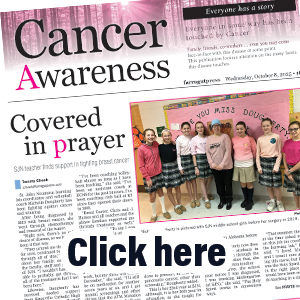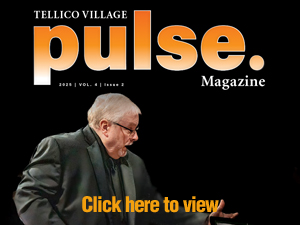letter to the editor
Town Attorney responds to Aug. 6 letter
Editor,
My normal rule is to forego commenting on published information about Town matters. Because I was involved in the events, I am departing from my normal practice with respect to the Mike Mitchell letter of Aug. 6, 2025, and Alderman Cain’s actions and published e-mail.
Among numerous uninformed statements made in the letter, Mitchell grants powers to Aldermen of the Town to give orders to others, such as Ms. Povlin. Such powers simply do not exist. Aldermen have the privilege to debate and vote on matters that come before the Board. Beyond that, some use the bully pulpit to lead, but only succeed if they earn the respect of the citizens.
The subject of Mitchell’s letter was the request of Alderman Cain that his e-mail be read at a Planning Commission meeting he could not attend. The e-mail he wanted read was the one in which he announced that he and Alderman White had reached an agreement outside of a public meeting on how they would vote on an issue at the Board level. Mitchell claims without the slightest basis “Povlin simply did not want the public to know the contents of the e-mail because it reflected very badly on her conduct and the conduct of others on the Planning Commission.” This statement is flat out wrong. The e-mail says nothing about the conduct, bad or good, of anyone except ironically the two Aldermen! This misdirection is Mitchell’s attempt to prey upon the busy Town citizens who don’t have the time to dig out the true facts. Mitchell’s point blaming Povlin for not reading the e-mail is also unsupported by facts because if anyone caused the letter not to be read at the meeting, it was me.
Those few who observed the meeting saw Ms. Povlin announce at the beginning that I, as the Town attorney, requested a change to the agenda to defer voting on the Resolution. There were two reasons I did this.
Mark Shipley wanted to discuss a technical legal question about Resolution PC 25-05. Reviewing the Resolution as it had been drafted, I found that it stated it was “to amend the . . . Major Road Plan to replace the street cross sections required in the Subdivision Regulations . . .” and it noted the “Farragut Major Road Plan as an element of the Farragut Comprehensive Land Use Plan.” I couldn’t tell if the proposal to change the street cross sections was amending the Subdivision Regulations, the Major Road Plan or the Comprehensive Land Use Plan. After discussing the matter with Shipley and his assistant, Bart Hose, on the day of the meeting, I wanted to look into the matter further and asked Shipley to request that the Planning Commission change the item to one for discussion only, which would give me time before a vote to research the issue.
During the same day, I was forwarded by staff the e-mail that Shipley and Aldermen White and Meyer had received from Alderman Cain about the Resolution that was on the agenda for the Planning Commission. Alderman Cain wanted the e-mail read at the meeting because he could not attend. I was not keen on having it read into the record containing the statements that the two Aldermen had discussed and decided how they would vote outside a public meeting. Postponing the vote on the Resolution would not only give me time to research the issue, but it would allow for Alderman Cain to read his e-mail when the Planning Commission meet to vote, as well as also give me time to get with Alderman Cain and make sure he understood his obligations under the law.
Once Alderman Cain returned to town the next week, he and I discussed these circumstances. I explained that it was my request to change the agenda and to not read his e-mail. I gave Alderman Cain the benefit of the doubt and did not accuse him of intentionally, knowingly violating the Sunshine Law. But I made it clear to him that in my opinion the facts presented a classic violation. We also discussed what the Courts call “curing” a violation of the Sunshine Law. Don’t get confused by this language as Mr. Mitchell apparently is! By definition one does not need a “cure,” unless there was a violation which is when two members of the governing body discuss Town matters outside a public meeting.
A final point to warn of additional misdirection. The apparent issue of concern raised in the Cain e-mail and Mitchell defense of it was the Town’s exercise of eminent domain powers; however, the subject of the Resolution, the street cross sections, have nothing to do with eminent domain.
~ Tom Hale, Farragut Town Attorney


